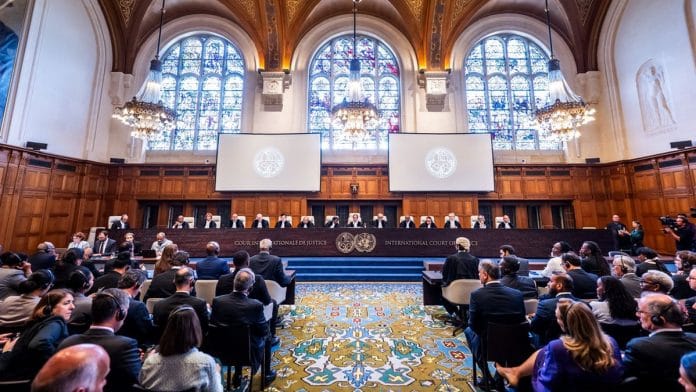When a group of Pacific Island law students first proposed in 2019 that the International Court of Justice should weigh in on climate change, few imagined the world’s top court would respond with one of the most sweeping legal opinions in its history. But on 23 July, in a unanimous and unflinching verdict, the court declared that countries have binding legal obligations to protect the climate, and that failing to do so may constitute an “internationally wrongful act”.
Though advisory in nature and not legally binding, the opinion delivers a seismic shift in the legal architecture of climate governance. It affirms that obligations to act on climate change arise not only from climate-specific treaties like the Paris Agreement, but also from human rights law, the law of the sea, biodiversity conventions, and customary international law. In short, states cannot hide behind selective treaty interpretations to avoid doing their fair share.
The court has now supplied a legal foundation to what many developing economies, including India, have long argued: climate justice is no longer just a moral claim but a matter of international law.
India’s fingerprints on the verdict
India, one of the most climate-vulnerable countries and also a significant emitter, played a prominent role in the lead-up to the opinion.
In its written and oral submissions, India underscored the principle of common but differentiated responsibilities. It argued that wealthy nations that grew rich through carbon-intensive development must not only cut emissions first, but also provide new and additional climate finance, technology transfers, and support for adaptation and loss and damage.
The ICJ largely agreed. Its opinion stresses that the duty to prevent environmental harm extends beyond borders, that this duty is one of conduct (not merely intent), and that failure to mitigate risks, even by omission, can amount to a breach of international obligations.
The most powerful innovation in the court’s reasoning is its embrace of due diligence as the legal yardstick. States, the ICJ said, must take all appropriate measures to avoid causing transboundary climate harm, including through domestic legislation, environmental impact assessments, and science-based decision-making.
It also made clear that due diligence is dynamic: obligations evolve with a country’s capabilities, available technology, and emerging science. Crucially, this standard applies not only to emissions, but to activities that lead to emissions such as fossil fuel production, subsidies, or failure to regulate polluting corporations. That means even governments that claim to be reducing emissions may fall short if they are simultaneously expanding coal or oil extraction.
Also Read: 25 of 130 cities under National Clean Air Programme see spike in pollution levels
A new tool for climate-vulnerable nations
The ruling thus hands climate-vulnerable countries a powerful new tool. It enables them to argue not just for stronger climate action at forums like COP30 later this year, but also to seek restitution, or at least accountability, from the biggest historical polluters.
Under international law, the court affirmed, wrongful acts that cause injury obligate states to offer cessation, guarantees of non-repetition, or reparations. That potentially extends to loss and damage financing—long a sticking point in global negotiations.
India now has legal support to demand that donor countries move beyond vague pledges. The opinion legitimises calls for transparent, time-bound climate finance mechanisms and reframes India’s demands for green technology access and an equitable global carbon budget as obligations rather than diplomatic asks. In domestic litigation too, the ICJ’s conclusions—particularly the recognition of the right to a clean, healthy, and sustainable environment—may be cited to compel climate accountability from both governments and corporations.
The court also addressed some of the more arcane but geopolitically vital concerns. For small island nations whose maritime boundaries are threatened by rising seas, it held that legal status and statehood need not vanish with receding coastlines. That is an important reassurance for countries like Vanuatu and Tuvalu, which pushed for the opinion, and a nod to the youth activists and civil society groups that campaigned for it in the first place.
None of this guarantees swift justice. America, a top emitter, does not recognise the ICJ’s jurisdiction. Fossil fuel interests remain deeply embedded in many economies, including India’s. And the court itself acknowledged the limitations of law, stating that climate change ultimately demands “human will and wisdom… to change our habits, comforts and current way of life”.
Still, the legal terrain has shifted. The ICJ has issued a new map of state responsibility. For India and other emerging economies, the opinion provides a clear, if narrow, path toward more equitable climate governance. As the geopolitical climate heats up alongside the planetary one, the courtroom may increasingly become a battleground.
Zerin Osho is director of the India Programme at the Institute for Governance & Sustainable Development (IGSD). Eoin Jackson is a PhD Candidate at the London School of Economics. Views are personal.
(Edited by Asavari Singh)






